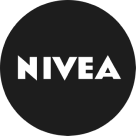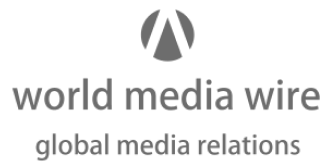The whole image around your brand is in your hands.
Except it’s not.
Here’s a fun fact – an average global internet user spends almost 7 hours a day using the Internet across all devices. This is approximately the amount of time we sleep! Shocking? Well, when you think about it, it isn’t really. Everything we do nowadays is somehow connected to the Internet. From work, shopping, and social media to binging your favorite show on Netflix – it seems like it’s an essential part of our life.
? Read Brand Reputation 101: Monitoring, Analysis, and Management Tools
If you’re a business owner, this gives impressive opportunities. But it also hides a lot of pitfalls along the way. The competition is harsher, building relationships with customers more demanding and standing out more complex than ever. Not to mention that your whole brand reputation can go down the drain following just one lousy comment on social media that goes the wrong way.
It’s one thing when you’re working on your image on your owned channels, but how to control it beyond those?
This is where media monitoring tools come in. In this blog, we’ll take a look at how you can use them for online presence management on channels you have no control over – your earned channels.
What Are the Essentials of Online Presence Management?
Online presence management refers to actions taken to ensure that a brand’s image on the internet is as positive as it can be.
But what exactly defines it?
There are 2 main sources that influence your online presence – your owned and your earned channels.
Owned channels refer to your:
- Website
- Social media channels
- Paid advertising channels
- Events
And all other channels you have control over.
Earned channels are those you don’t control directly, such as:
- Review pages
- Forums
- Social media comments by people not from your company
- Media etc.

It’s essential to take care of all sources to manage online presence effectively. In this context, it is clear how to influence your owned channels. But how to manage the ones that you don’t?
One very simple way is through a media monitoring tool, such as Determ.
Media monitoring refers to tracking and analyzing online mentions of your brand to identify trends, prevent crises, and optimize your marketing campaigns. You can perform it with media monitoring tools that collect all your mentions in one dashboard. They also allow you to filter your results by channels, language, sentiment, location, etc. As a result, you get an even clearer picture of the differences in perception in different markets and platforms.
How to Manage Your Online Presence with a Media Monitoring Tool?
Set up the right keywords
Every great media monitoring project starts with setting up your keywords correctly. So the first thing you should definitely track is your brand’s name. In this process, make sure to add all variations of your brand name (if any). This is how you ensure that you have an overview of all brand mentions.
So, for example, if you’re working for Coca-Cola, insert both this and the more colloquial name “Coke” in your media monitoring tool since people use this name often in conversations.

In addition, you can track:
- Your products/services
- Key people from the company
- Specific campaign names
- Branded hashtags, etc.
Let’s go back to Coca-Cola example again. In this case you could track products like Coke Zero (or Coca-Cola Zero), “Holidays are coming” campaign, #shareacoke hashtag, or James Quincey, the CEO.
After correctly inserting your keywords, you’ll get access to all online mentions of this keyword, including their source, influence score, engagement rate, and sentiment.

In this way, you’ll be able to detect easily how your brand is perceived, what people are saying about it, and if there is something that you should be paying special attention to that can ultimately benefit or hurt your online presence.
Read 6 Reasons Why You Should Use Media Monitoring
Get notified about your brand mentions in real-time
Probably one of the most valuable features a good media monitoring tool can provide is real-time alerts that notify you whenever your keyword is mentioned. You can get a notification on your email, Slack, or mobile application. How is this useful for your online presence management?
Let’s go back to the Coke example.
Imagine you get a notification about this Twitter mention:
It is clearly a strong criticism of Coca-Cola and Heineken, which has already started to spread since it’s a retweet. The topic is quite hot, climate change has been in focus for quite a while now, and many brands are trying to emphasize everything they do to stop pollution. In this context, anything that proves a particular brand is actively participating in using nature’s resources and hurting the environment and local population is up for a boycott, to expect the least.
Getting a notification about this mention gives you what you need the most in these situations – time. Upon receiving it you can immediately react with your crisis communication plan, offer an explanation, stop the negative sentiment from spreading like wildfire and protect your brand reputation.
Media monitoring tool Determ has two types of real-time notifications: spike and smart alerts. Spike alerts are notifications that you receive when there is an increase in the amount of mentions for a certain topic. Smart alerts, on the other hand are notifications for every mention that matches specific filter criteria.
Read Alerts and Digests: How to Keep up With Your Mentions
Follow the reach of your campaigns
When you release a new campaign you’ve spent a lot of time and assets to figure out, can you really measure what kind of an impact it had? Besides social media channels showing reach and engagements of your posts and Google ads providing clear metrics, how can you measure the impact in online media? Even more, if you’ve arranged collaborations with online and print media to publish your press release, how will you quickly check if they’ve published it and what kind of reach it had?
With media monitoring tools such as Determ, you can find this information in your feed with mentions.
What’s in it for you?
You can easily check how many people actually read what the online publication promised to share about you. This being said, you can check if the reach they were promising corresponds to the agreement and decide whether this is what you’re aiming for or if this collaboration has a considerable effect on your online presence.
Focus on specific topics
When building a brand, it’s sometimes hard to keep up with everything going on on different platforms. Social media channels you own, websites, forums, review pages, etc. can cause quite a confusion when detecting what is good or bad in your online presence. Determ can help here with Automated actions.
They are basically sets of rules you create to automate the process of assigning tags and sentiment to specific mentions.

So you can, for example, add a specific tag when a particular campaign name is mentioned, when a specific website publishes something about you, or if you get a review on a certain review platform. This way, you can easily focus on a certain topic without going through your entire feed and all mentions.
As a result, you can, e.g., track the sentiment of mentions around your specific campaign or the number of interactions that a particular website provokes when they publish content about your brand.
Ultimately, this will give you a clear overview of which areas of your online presence you could improve and which may not be worth investing your time into.
Monitor the influence of your earned channels
All earned attention is important, but some mentions may be more important than others. What do we mean by that?
Information on the influence score of sources may help you prioritize your action plans.
So, for example, this negative mention from Facebook:
might require a more urgent response than one with an influence score of 0 or 1. An influence score of 0 or 1 means that a source has a rather small following, whereas a higher score indicates that these are highly influential sources with many followers.
Also, suppose you notice that most of your mentions come from sources with a rather small influence score. In that case, you might want to consider putting additional effort into collaborating with sites or profiles that have more followers and expand your reach and strengthen your online presence.
To Sum Up
Online presence management may seem rather straightforward if you take only your owned channels into account. You’re not crazy to publish something terrible about yourself, right?
But you’re not the only one talking about your brand, and what others say is even more important because it represents the voice of your customers. With 74% of consumers that rely on social media while shopping, it’s pretty clear how important it is to get involved with earned channels as well. This is where media monitoring tools come in as an asset. They allow you to track what is being said about your brand, prevent crises and work towards presenting your brand in the best light.
If you’d like to find out more about how Determ helps you in online presence management, book a demo and we’ll show you around.







